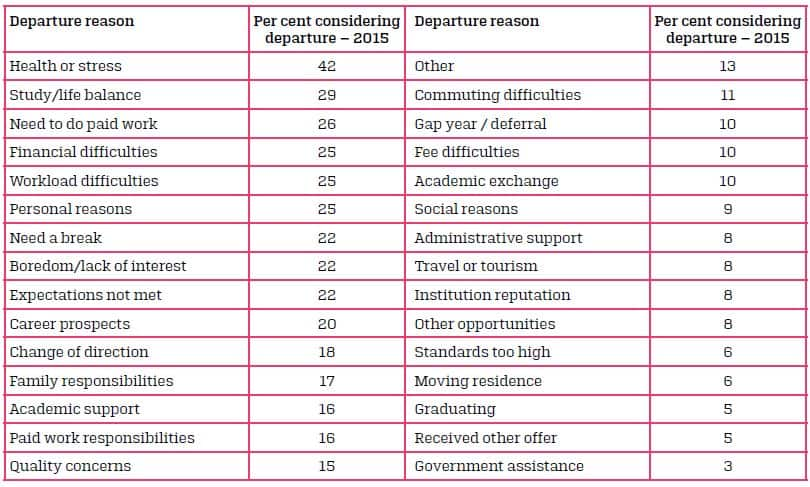The 2015 QILT – Quality Indicators for Learning and Teaching – data drawn from a large survey of 145,000 students across Australia, has shed some light on how international students view the overall quality of their educational experience, teaching quality, learner engagement, learning resources , student support, and skills development.
The QILT survey program, including the Student Experience Survey (SES), is funded by the Australian Government’s Department of Education and Training.
Federal Education Minister Simon Birmingham said the data was part of a broader push to increase transparency in the higher education sector.
"That's why I've asked the Higher Education Standards Panel to consult on the best ways we can ensure students are 'uni-ready' and can make informed choices about their studies," he said.
Students were asked to indicate whether they had seriously considered leaving their institution during 2015.
18% of respondents indicated that they had considered leaving their university.
From a list of 30 possible reasons, the students ranked Situational, Institutional, and Dispositional factors. Situational factors such as health or stress (42 per cent), study/life balance (29 per cent), the need to do paid work (26 per cent), unspecified personal reasons, and difficulties relating to finances and workload (each with 25 per cent). were indicated by a large number of students.
Situational factors such as health or stress (42 per cent), study/life balance (29 per cent), the need to do paid work (26 per cent), unspecified personal reasons, and difficulties relating to finances and workload (each with 25 per cent). were indicated by a large number of students.

Table - Selected reasons for considering early departure Source: QILT 2015
The most common (arguably) institutional factor indicated by students was that their expectations had not been met (22 per cent), which may indicate that further analysis of student expectations of their higher education experience would be beneficial in discussions around attrition and retention.
Other institutional factors were indicated much less frequently (e.g. academic support, administrative support, institutional reputation).
Several dispositional factors were also relatively common, including boredom/lack of interest or a need to take a break (each with 22 per cent), career prospects (20 per cent), and a change in direction (18 per cent).
According to the QILT 2015 report international students who spoke English as their main language at home were more likely to consider leaving their institution than those who spoke a language other than English at home.
Share
